Cardiothoracic surgeons can learn about the latest news, research, procedures, and technological advances in the field through a variety of publications from the AATS.
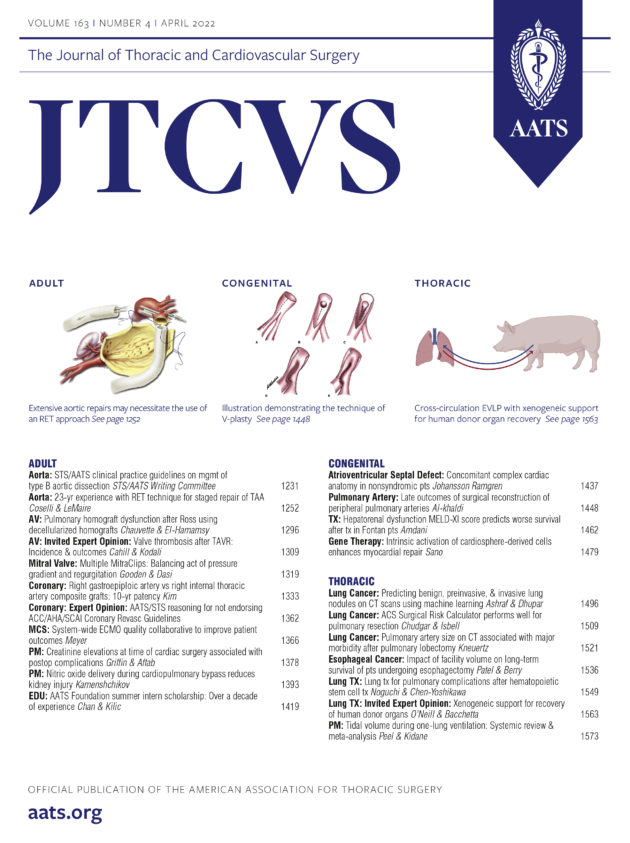
JTCVS
The Journal of Thoracic and Cardiovascular Surgery presents original, peer-reviewed articles on diseases of the heart, great vessels, lungs, and thorax with emphasis on surgical interventions. An official publication of the American Association for Thoracic Surgery and the Western Thoracic Surgical Association, the Journal focuses on techniques and developments in acquired cardiac surgery, congenital cardiac repair, thoracic procedures, heart and lung transplantation, mechanical circulatory support, and other procedures. Published by Elsevier, the Journal holds the highest rank in its field with an impact factor of 5.261, according to Thomson Reuters Journal Citation Reports.
Editor: G. Alexander Patterson, MD
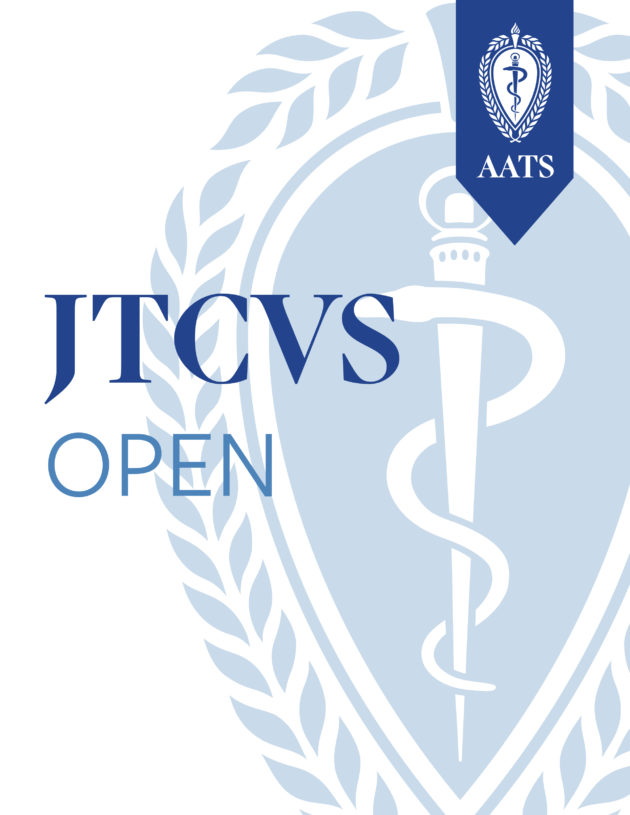
JTCVS Open
JTCVS Open is a peer-reviewed, open-access journal from the American Association for Thoracic Surgery, the publisher of the Journal of Thoracic and Cardiovascular Surgery (JTCVS). Brought to you by the same editorial team as JTCVS, JTCVS Open maintains rigorous standards of peer review and is dedicated to publishing high-quality information for thoracic and cardiac surgeons. JTCVS Open focuses on developments in acquired cardiac surgery, congenital cardiac repair, thoracic procedures, heart and lung transplantation, mechanical circulatory support and perioperative management.
Editor: G. Alexander Patterson, MD
View JTCVS Open Science Direct
View JTCVS Open Editorial Board
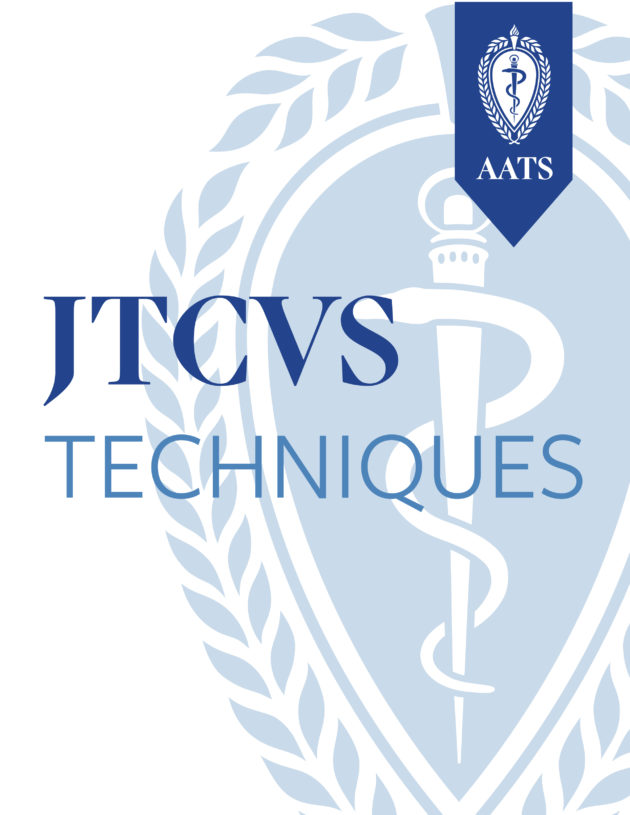
JTCVS Techniques
JTCVS Techniques is a peer-reviewed, open access journal from the American Association for Thoracic Surgery, the publisher of the Journal of Thoracic and Cardiovascular Surgery (JTCVS). Brought to you by the same editorial team as JTCVS, JTCVS Techniques aims to provide timely information to cardio-thoracic surgeons by publishing high-quality case reports, innovative techniques and cardiothoracic images in video and multimedia formats. Videos are an important component to demonstrate techniques and report outcomes of surgical interventions.
Editor: G. Alexander Patterson, MD
View JTCVS Techniques Science Direct
View JTCVS Techniques Editorial Board
Read JTCVS Techniques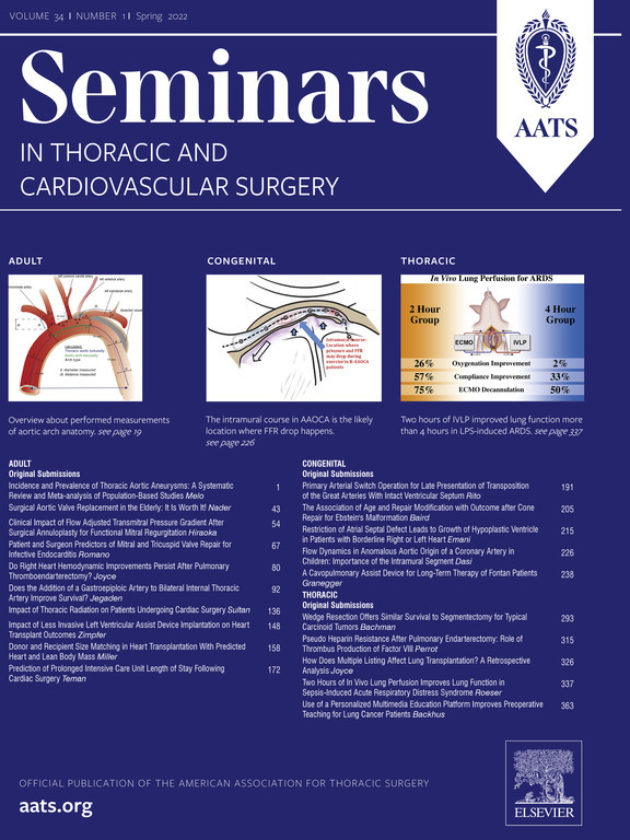
Seminars in Thoracic and Cardiovascular Surgery
Seminars in Thoracic and Cardiovascular Surgery is devoted to keeping the practicing cardiothoracic surgeon current. Each issue of this quarterly journal presents readers with a selection of original, peer-reviewed articles critiqued through editorial commentaries from specialists in the field of interest. In addition to the original material, readers are presented with invited papers that include State of the Art reviews, News and Views editorial pieces, and Current Readings highlighting up-to-date articles on fundamental or controversial issues. Another not-to-miss feature in each edition is the expert roundtable discussion where authorities in cardiothoracic surgery answer critical “how-to” questions on a preselected topic.
Co-Editors: Eugene Grossi, MD, Nahush Mokadam, MD, R. Taylor Ripley, MD, and Ram Kumar Subramanyan, MD
Read Seminars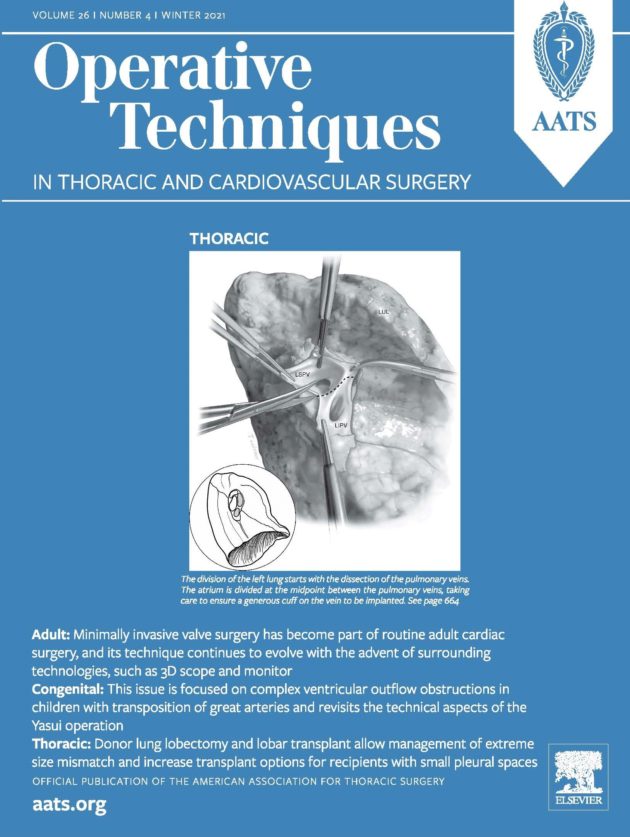
Operative Techniques in Thoracic and Cardiovascular Surgery
Operative Techniques in Thoracic and Cardiovascular Surgery: A Comparative Atlas provides technique-based articles in cardiovascular and thoracic surgery by renowned surgeons in the field, presented in atlas format. This quarterly publication contains sections in adult, congenital, general thoracic surgery, and transplantation. When sections contain multiple articles, the articles explore a single procedure using varying techniques. Original line drawings, intraoperative photographs, and imaging studies are included to illustrate the different operative approaches.
Editor: M. Blair Marshall, MD
View Operative Techniques Science Direct
View Operative Techniques Editorial Board
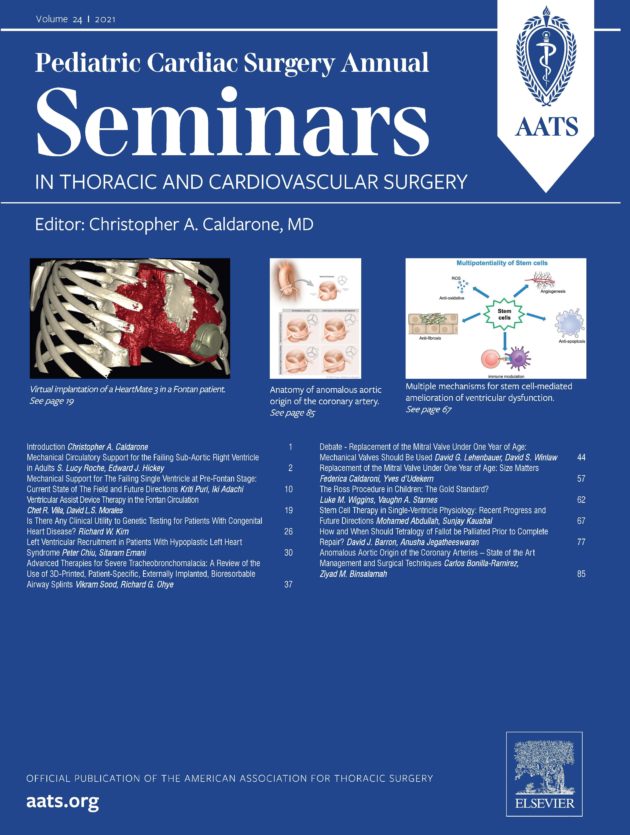
Pediatric Cardiac Surgery Annual
The Pediatric Cardiac Surgery Annual is a companion to Seminars in Thoracic and Cardiovascular Surgery that focuses on the most significant developments in pediatric cardiac surgery, providing coverage of new procedural and technological advances. Each annual volume contains submissions by prominent surgeons who presented their findings during the Post-Graduate Course of the AATS Annual Meeting from the previous year.
Editor: Christopher A. Caldarone, MD
View Pediatric Annual Science Direct
AATS Journal Alerts
Sign up to receive featured in-press articles from JTCVS and the AATS Journals. Subscribers can select targeted collections for adult cardiac, congenital, or general thoracic specialties sent directly to their inboxes twice a month.
